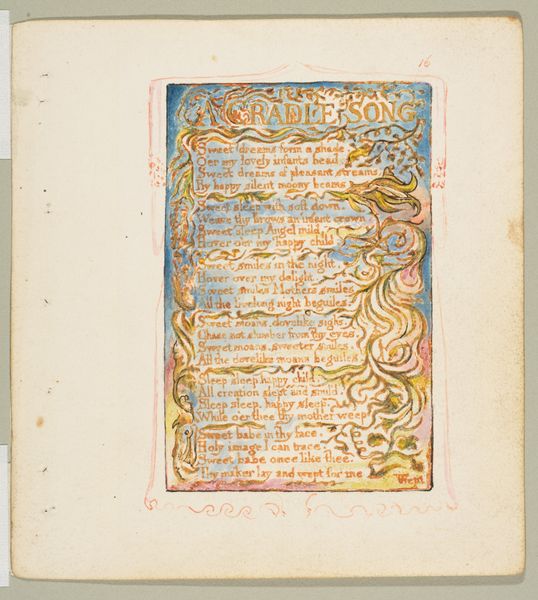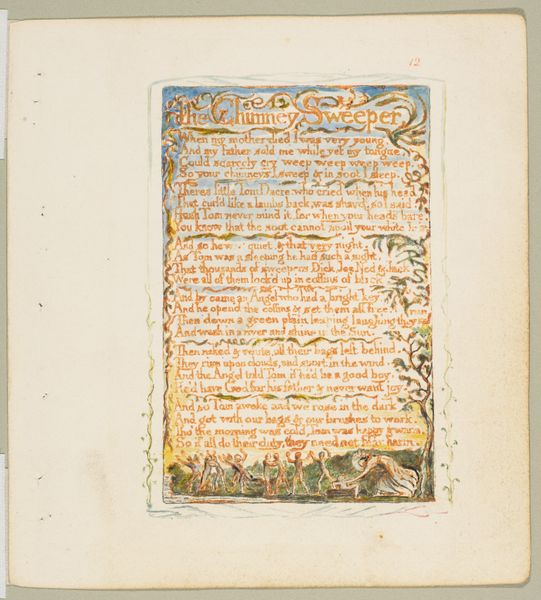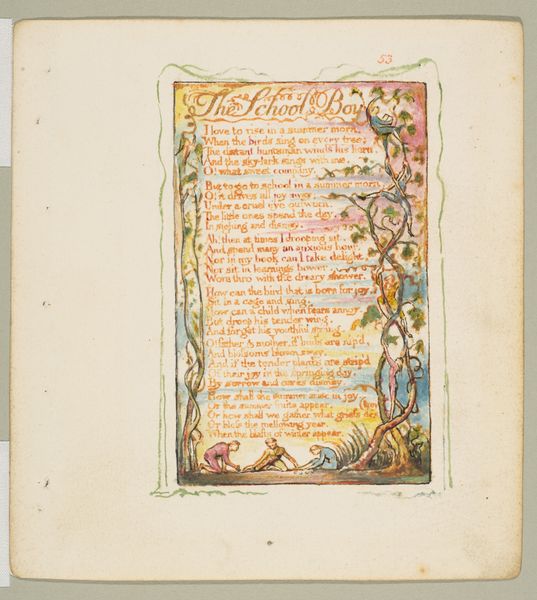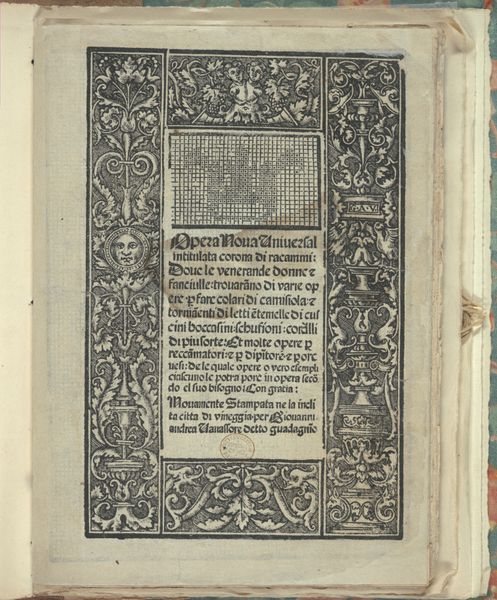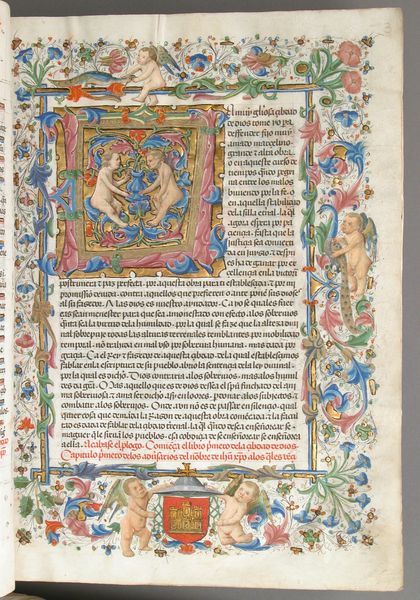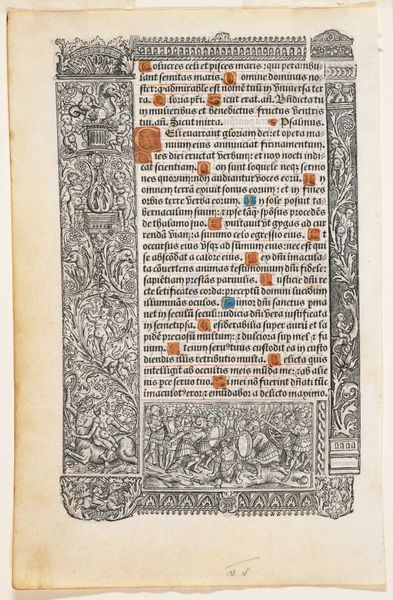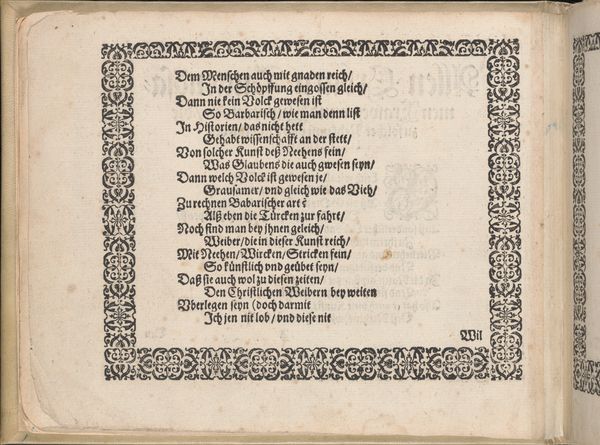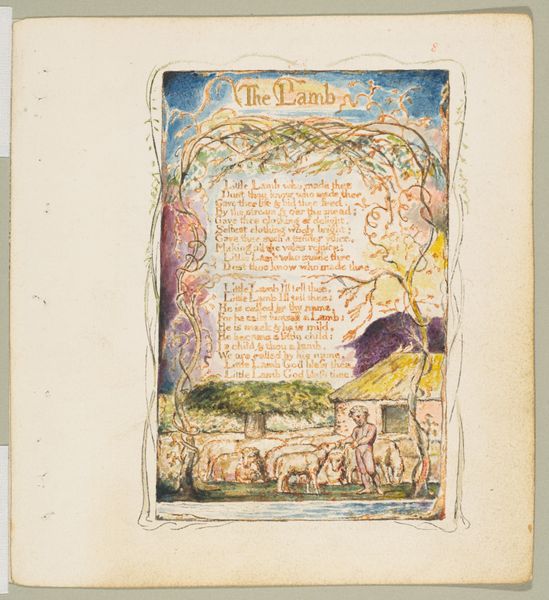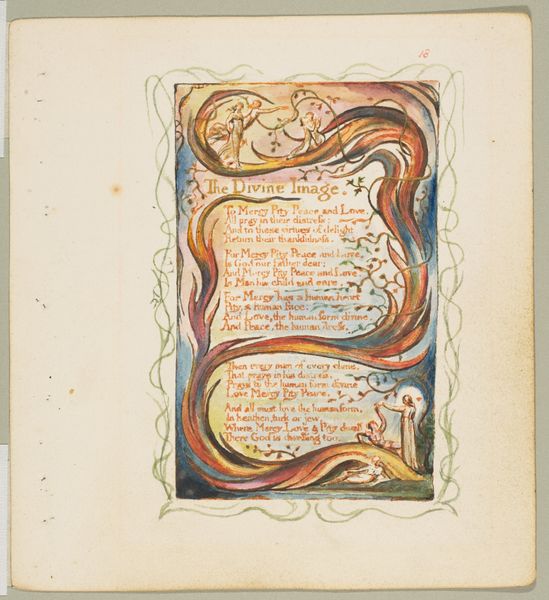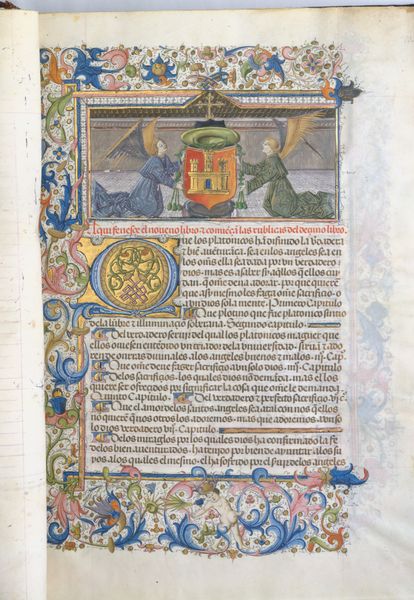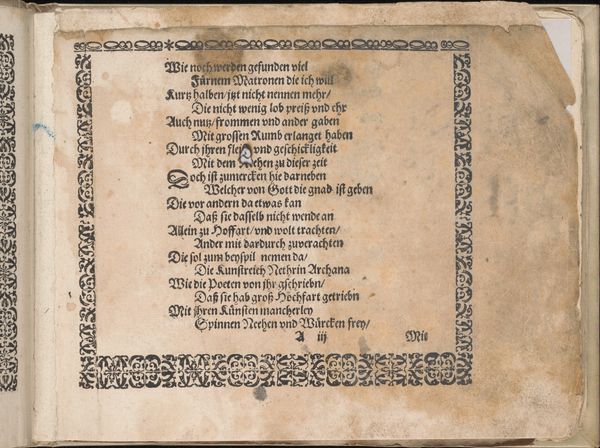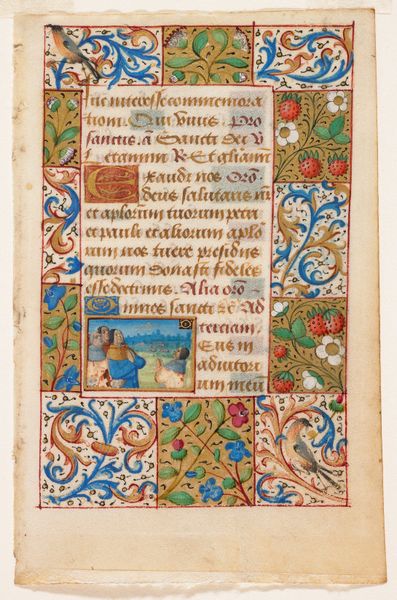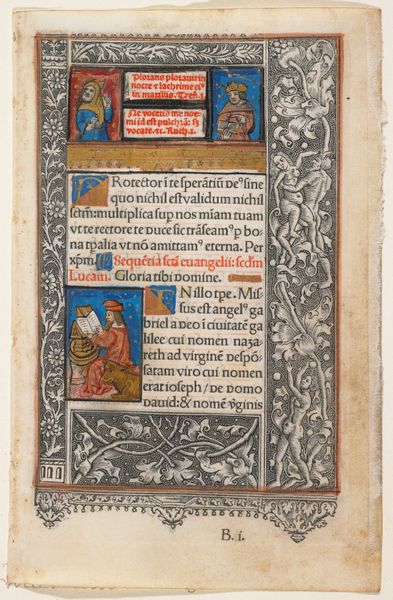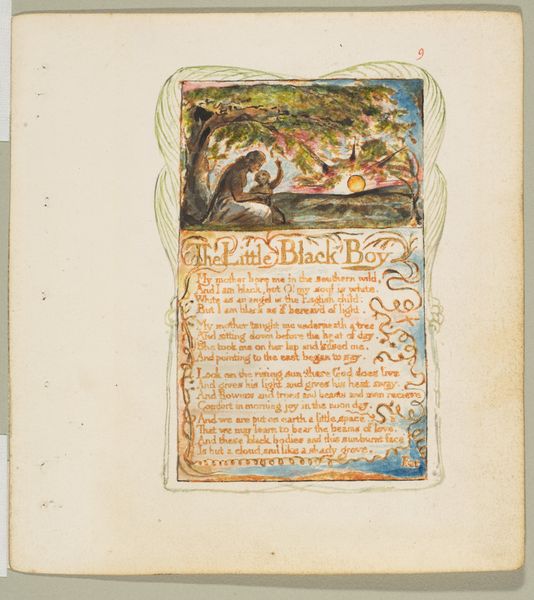
drawing, coloured-pencil, print, paper, ink
#
drawing
#
coloured-pencil
# print
#
paper
#
text
#
ink
#
coloured pencil
#
romanticism
Dimensions: sheet: 6 3/16 x 5 9/16 in. (15.7 x 14.1 cm)
Copyright: Public Domain
"Songs of Innocence: Introduction" was made circa 1789 by William Blake, using relief etching and watercolor. Blake lived through the Age of Enlightenment and the Industrial Revolution, both of which profoundly shaped his artistic and philosophical views. Here, Blake presents an idyllic vision of childhood, free from the corruption of society. The poem tells of a piper who is asked by a child "on a cloud" to write songs for everyone to enjoy. It reflects the Romantic era's emphasis on emotion, nature, and the individual. The notion of innocence is complicated; it is not simply naivety, but a state of potential and purity, before experience and societal norms take hold. Blake's technique of combining text and image was revolutionary, democratizing the book form. As he printed and sold them himself, his works stand as a form of resistance against the conventional art world, emphasizing personal expression and spiritual freedom. How might this direct access to Blake’s vision affect our understanding of childhood?
Comments
No comments
Be the first to comment and join the conversation on the ultimate creative platform.
